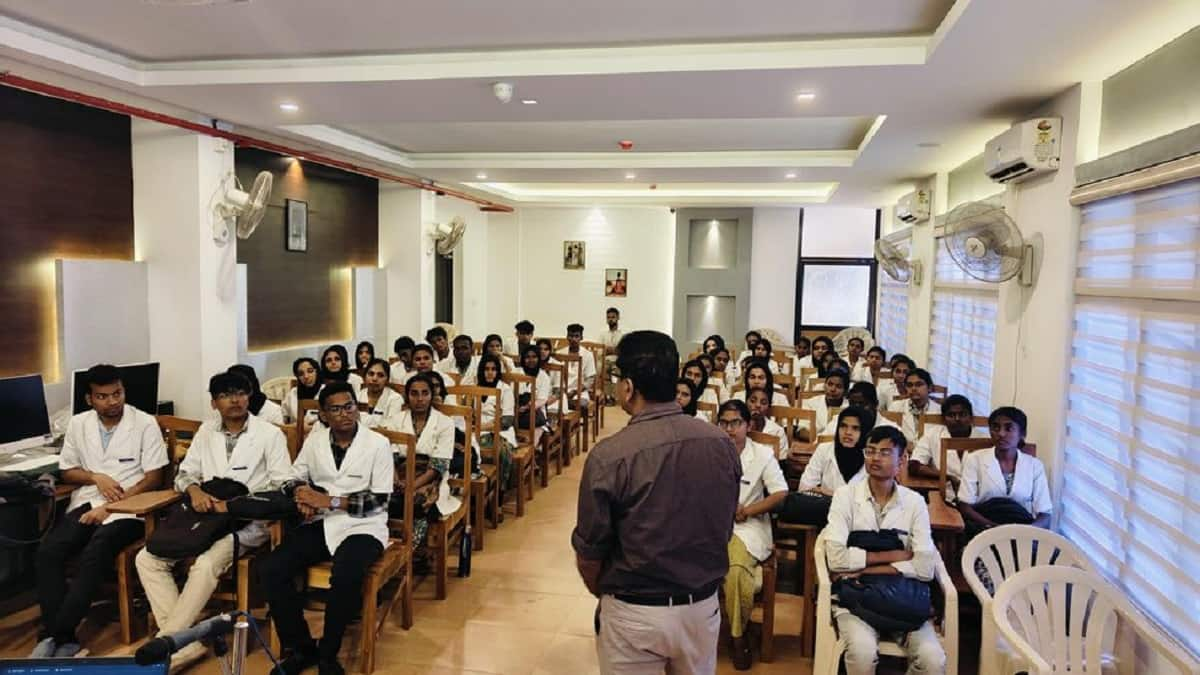NMC restores MSc-PhD eligibility in Pharmacology, Microbiology; raises cap on 'non-medical' faculty to 30%
Anu Parthiban | July 6, 2025 | 11:49 AM IST | 2 mins read
NMC has raised the upper age limit for appointment as senior resident to 50 years in pre-clinical and para-clinical subjects such as Anatomy, Physiology, Biochemistry, Pharmacology.

The National Medical Commission (NMC) has notified the Medical Institutions (Qualifications of Faculty) Regulations, 2025 to expand medical education capacity and strengthen faculty availability. It has also amended the Minimum Standard Requirements (MSR) for faculty appointment, allowing teachers with MSc-PhD qualifications to be appointed to two more specialisations — Pharmacology and Microbiology.
The move is aimed at addressing the growing demands of healthcare professionals and qualifying medical education. With the central government announcing a vision to add 75,000 new medical seats over the next five years, there were concerns over the availability of qualified faculty required to initiate or expand medical programs.
“These new regulations are a major step towards unlocking the existing human resource potential within government health systems and optimizing medical education infrastructure,” the statutory body said.
“These forward-looking regulations mark a paradigm shift in how faculty eligibility is determined—shifting the focus from rigid service norms to competency, teaching experience, and academic merit. By unlocking the untapped potential within the existing government healthcare workforce, this reform will accelerate the expansion of medical education, particularly in underserved areas,” it said.
NMC Faculty Regulations: Major changes
The NMC has introduced and amended certain guidelines for appointment of faculty in medical institutions.
- In a major change, the NMC has allowed candidates with MSc-PhD to be appointed as teachers in two more specialisations — Pharmacology and Microbiology. These subjects were originally there, but were removed in 2020. The two courses have been added in addition to anatomy, physiology, and biochemistry.
- Also MSc-PhD is no longer listed as an alternate qualification, but is now considered at par with MD, MS, DNB. The draft norms had suggested that MSc-PhDs be hired only during a transition period of faculty shortage.
- The minimum required experience for non-teaching doctors to become assistant professors has been reduced from 4 years to 2 years. “Existing specialists with 10 years of experience can be appointed as Associate Professors, and those with 2 years can be appointed as Assistant Professors—without the mandatory Senior Residency— provided they complete the Basic Course in Biomedical Research (BCBR) within two years,” the rules read.
- The cap on appointment of non-medical teachers has been increased from 15% to 30% of the total number of posts in Anatomy, Physiology, Biochemistry, Microbiology, and Pharmacology, subject to the non-availability of faculty members.
- Non-teaching government hospitals with 220+ beds can now be designated as teaching institutions, it said.
- The upper age limit for appointment as senior resident has been increased to 50 years in pre-clinical and para-clinical subjects such as Anatomy, Physiology, Biochemistry, Pharmacology, Pathology, Microbiology, Forensic Medicine, and Community Medicine.
- Facilitating Simultaneous UG and PG courses: New government medical colleges are now permitted to start UG and PG courses simultaneously, expediting the production of healthcare professionals and teaching faculty.
- Rationalization of PG Minimum Standards: PG courses can now be started with two faculty members and two seats, relaxing the earlier requirement of three faculty and a senior resident. Bed requirements per unit have also been rationalized for several specialties.
Follow us for the latest education news on colleges and universities, admission, courses, exams, research, education policies, study abroad and more..
To get in touch, write to us at news@careers360.com.